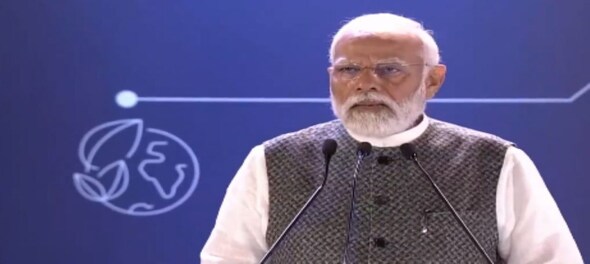
Brokerage firm UBS in a recent note said Prime Minister Narendra Modi remains the most popular leader in India, citing recent opinion polls ahead of the Lok Sabha Elections, scheduled to begin on April 19 and will be conducted across seven phases.
UBS also believes that political stability would likely lead to policy continuity, which could bode well for market sentiment.
"During a potential third term for Modi, we would expect further progress towards digitisation and continued policy push toward manufacturing/exports, given India's increasing footprint in global value chains," said UBS Economist Tanvee Gupta Jain.
While sharing its views on the possible election outcomes scenarios, UBS said that the recent performance in assembly elections suggest that the ‘Modi factor’; the perception of the work done; and implementation of welfare programmes worked in favour of BJP.
UBS on three potential scenarios
UBS is analysing three potential political scenarios post the Lok Sabha elections:
Although it has not assigned a probability to each of the three above-mentioned scenarios, UBS' discussions with investors and valuation multiples suggest that the first two are largely priced by India's $4 trillion stock market.
Single-Party Majority For The BJP
In the first scenario, UBS thinks the focus would be on policy continuity, which could bode well for business sentiment and the much-anticipated private corporate capex recovery.
"In addition, further progress in supply-side reforms could be seen, including the clean energy transition, higher infrastructure spending, a manufacturing push and other targeted policy initiatives towards the youth, poor, women and farmers," the brokerage noted.
A BJP-led Coalition
For the second scenario, UBS wrote that reform momentum will remain broadly similar, but some tough policies may not progress and / or are likely to be put on hold, including disinvestment, a land bill and a uniform civil code. "However, comfort about fiscal discipline could be less of a concern for investors in this scenario," UBS said.
A Weak Coalition Led by the I.N.D.I.A
In the third scenario, the economic policy approach would be largely aligned, but markets could have concerns about fiscal discipline and a less decisive government, leading to lags in implementing supply-side reforms, the foreign broking firm said.
"There could also be a delay in the private corporate capex recovery due to weaker business confidence caused by the surprise political outcome," it added.
The seven-phase Lok Sabha election will conclude on June 1, while counting of votes will take place on June 4, Chief Election Commissioner Rajiv Kumar announced over the weekend.
(Edited by : Hormaz Fatakia)
First Published: Mar 21, 2024 6:48 AM IST
Note To Readers
Disclaimer: The views and investment tips expressed by investment experts on CNBCTV18.com are their own and not that of the website or its management. CNBCTV18.com advises users to check with certified experts before taking any investment decisions.
Check out our in-depth Market Coverage, Business News & get real-time Stock Market Updates on CNBC-TV18. Also, Watch our channels CNBC-TV18, CNBC Awaaz and CNBC Bajar Live on-the-go!


2024 Lok Sabha Elections | What does a low voter turnout indicate for NDA and I.N.D.I.A Bloc
Apr 29, 2024 5:48 AM
'Borrowed' leaders: Congress hits out at AAP for not fielding their own candidates in Punjab
Apr 28, 2024 9:53 PM
EC asks AAP to modify election campaign song and Kejriwal's party is miffed
Apr 28, 2024 9:25 PM

